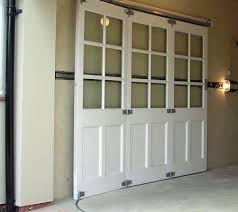Automatic doors have become a common feature in commercial and public buildings, providing convenience and accessibility to thousands of people every day. However, like any mechanical system, automatic doors require regular maintenance to ensure they function correctly, reliably, and safely. Automatic door maintenance is not only a matter of convenience but also a crucial aspect of facility management that plays a significant role in ensuring the safety and accessibility of these entrances.
1. Safety Assurance:
Safety is paramount when it comes to automatic doors. These doors are designed to open and close automatically, which means they need to be consistently monitored and maintained to ensure they operate safely. Routine maintenance helps identify and address potential issues, such as malfunctioning sensors, worn-out components, or obstruction detection problems, before they become safety hazards.
2. Accessibility Compliance:
Many countries have established accessibility regulations to ensure that public spaces provide equal access to all individuals, including those with disabilities. Automatic doors are a vital part of meeting these regulations, as they enable easy entry and exit for individuals with mobility challenges. Regular maintenance ensures that automatic doors remain compliant with these accessibility standards, allowing everyone to use these entrances without difficulty.
3. Preventative Maintenance:
Preventative maintenance is key to avoiding sudden door failures. Automatic doors experience significant wear and tear due to their continuous operation. Regular servicing includes inspecting, lubricating, and adjusting various components, such as sensors, motors, belts, and tracks. Addressing minor issues before they escalate helps prevent unexpected door breakdowns and costly emergency repairs.
4. Energy Efficiency:
Efficiency is not just about convenience but also about reducing energy waste. Automatic doors are designed to open and close quickly to maintain an energy-efficient environment within the building. If they become sluggish or fail to close properly, they can lead to energy wastage as climate-controlled air escapes. Routine servicing ensures that automatic doors continue to function optimally, minimizing energy consumption and the associated environmental impact.
5. Extended Lifespan:
Automatic doors are a significant investment for any facility. Regular maintenance helps extend their lifespan, protecting the owner’s investment and delaying the need for costly replacements. By addressing minor issues, wear and tear, and component degradation proactively, servicing helps maintain the doors’ performance and durability.
6. Customer Experience:
The functionality of automatic doors significantly impacts the overall customer experience. Malfunctioning or slow doors can frustrate customers, leave a negative impression, and potentially deter return visits. Regular servicing helps ensure a smooth and hassle-free experience for patrons, enhancing their perception of the facility and the businesses within it.
7. Reduced Downtime:
Automatic doors are often an integral part of daily business operations. If an automatic door stops working, it can disrupt normal operations, affecting customer flow, and potentially causing revenue losses. Scheduled maintenance minimizes the risk of sudden door failures, reducing downtime and the associated financial impacts.
8. Regulatory Compliance:
Facility owners and managers must adhere to various regulations and standards related to automatic doors, including safety and accessibility requirements. Routine maintenance helps ensure that automatic doors remain compliant, preventing potential legal issues and liabilities.
9. Customized Service Plans:
Professional automatic door maintenance providers offer customized service plans to meet the specific needs of different facilities. These plans can include regular inspections, maintenance, repairs, and emergency support, ensuring that the doors operate reliably and efficiently.
10. Environmental Impact:
In today’s world, environmental sustainability is a significant concern. Maintenance of the efficiency of automatic doors is essential in this context. Servicing ensures that these doors don’t waste energy, reducing the facility’s carbon footprint and overall environmental impact.
In conclusion, automatic door maintenance is not just a matter of convenience; it is essential for ensuring the safety, accessibility, and reliability of these doors. It also plays a crucial role in energy efficiency, extending the lifespan of doors, enhancing customer experience, reducing downtime, ensuring regulatory compliance, and contributing to environmental sustainability. For businesses and institutions that rely on automatic doors, investing in routine maintenance is an indispensable practice that protects their assets, maintains a welcoming environment, and adheres to safety and accessibility standards.
Check out Safetell Ltd for more information.





